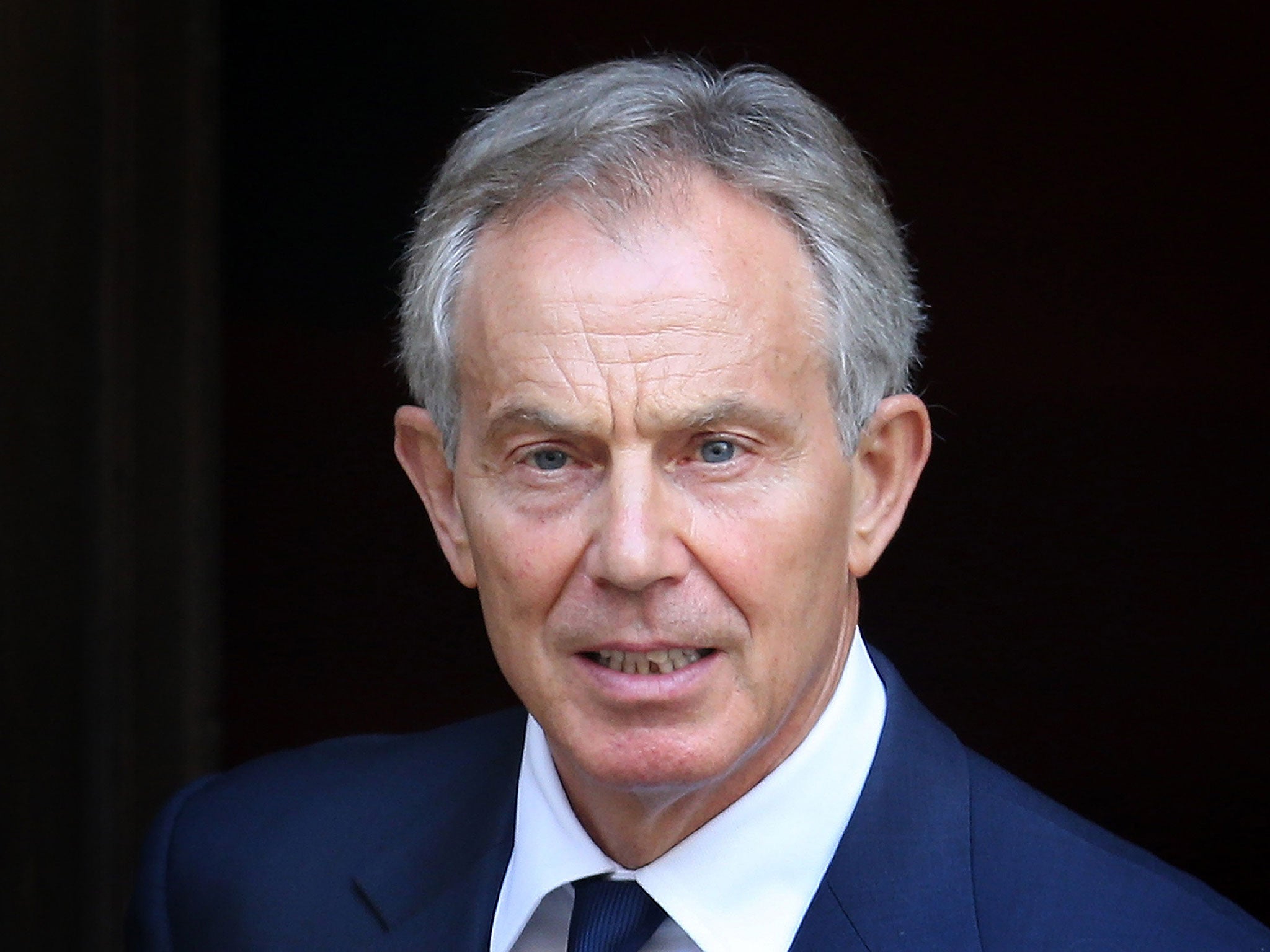Tony Blair: Claims that invasion of Iraq caused current crisis are 'bizarre'
Former Prime Minister says that the current situation in the Middle East would be worse if the US and UK had not sent troops in 2003

Former Prime Minister Tony Blair has rejected claims that he is to blame for the current crisis in Iraq and has said that the situation in the Middle East would be “worse” if the US and UK had decided against sending troops to overthrow Saddam Hussein in 2003.
In an essay published on his website discussing the current situation in the Middle East, Blair said that we had to “liberate ourselves from the notion that we caused this” and that the belief that the US led invasion of Iraq had led to sectarian violence in the country was “bizarre.”
In the article he wrote: “We can argue as to whether our policies at points have helped or not; and whether action or inaction is the best policy and there is a lot to be said on both sides. But the fundamental cause of the crisis lies within the region not outside it."
Blair, who made the decision to support the US invasion of Iraq when he was Prime Minister, said that it was wrong to think that if Saddam Hussein had stayed in power Iraq would not be experiencing the violence it is today.
He wrote: “"Is it seriously being said that the revolution sweeping the Arab world would have hit Tunisia, Libya, Egypt, Yemen, Bahrain, Syria, to say nothing of the smaller upheavals all over the region, but miraculously Iraq, under the most brutal and tyrannical of all the regimes, would have been an oasis of calm?”
"Easily the most likely scenario is that Iraq would have been engulfed by precisely the same convulsion … The risk would have been of a full blown sectarian war across the region, with states not fighting by proxy, but with national armies."
He later backed up these statements in an interview for the BBC’s Andrew Marr show.
During the interview he said: "Even if you'd left Saddam in place in 2003, then when 2011 happened - and you had the Arab revolutions going through Tunisia and Libya and Yemen and Bahrain and Egypt and Syria - you would have still had a major problem in Iraq.
"Indeed, you can see what happens when you leave the dictator in place, as has happened with Assad now. The problems don't go away.”
While Blair was reticent to condone sending ground troops to the Iraq, he did say that the situation was something that affected all of us and that those in the West needed to take an active role in the region’s future.
He said: “We actively try and shape this situation and don’t believe that if we just wash our hands of it and walk away that the problems will be solved.”
You can see what happens when you leave the dictator in place, as you can see with Assad now, these problems don’t go away.”
“If you ask France, Germany and the UK what their single biggest worry they would say returning Jihadist fighters."
Despite Blair’s words, a number of critics have come out to dismiss his claims.
These critics maintain that Britain and America’s intervention in Iraq was one of the main reasons for the sectarian violence that is now plaguing Iraq and say that Blair’s latest comments are him "washing his hands of responsibilty."
Sir Christopher Meyer, Britain's ambassador to the US from 1997 to 2003, told the Mail on Sunday that the handling of the campaign against Saddam Hussein was "perhaps the most significant reason" for the violence now gripping Iraq.
He said: "We are reaping what we sowed in 2003. This is not hindsight. We knew in the run-up to war that the overthrow of Saddam Hussein would seriously destabilise Iraq after 24 years of his iron rule."
Michael Stephens, an expert on Iraq and Syria for the Royal United Services Institute, told the BBC that he thought Mr Blair was "washing his hands of responsibility," and that the Iraq War had a big part to play in the fragmentation of Iraq.
Nevertheless, he did agree that Britain could not sit back and would need to take action to ensure that the violence in Syria and Iraq was stopped.
He said: "We do have some kind of role to play in terms of trying to make sure that both Iraq and Syria do not fragment and just move on into sort of unending violence."
Join our commenting forum
Join thought-provoking conversations, follow other Independent readers and see their replies
Comments
Bookmark popover
Removed from bookmarks